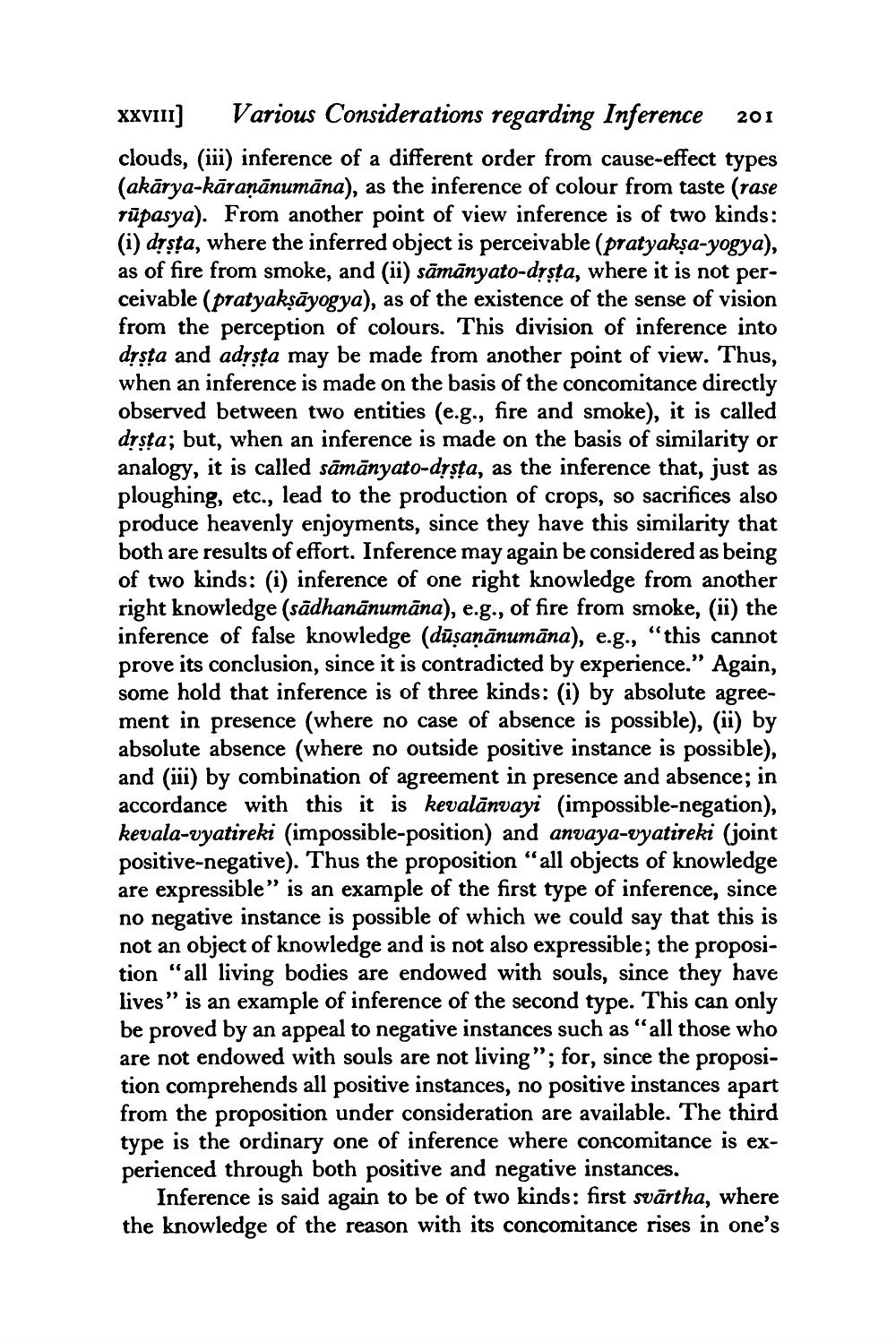________________
xxv11] Various Considerations regarding Inference 201 clouds, (iii) inference of a different order from cause-effect types (akārya-kāraṇānumāna), as the inference of colour from taste (rase rūpasya). From another point of view inference is of two kinds: (i) dssta, where the inferred object is perceivable (pratyakşa-yogya), as of fire from smoke, and (ii) sāmānyato-drsta, where it is not perceivable (pratyakṣāyogya), as of the existence of the sense of vision from the perception of colours. This division of inference into dışța and adssta may be made from another point of view. Thus, when an inference is made on the basis of the concomitance directly observed between two entities (e.g., fire and smoke), it is called drsta; but, when an inference is made on the basis of similarity or analogy, it is called sāmānyato-dysta, as the inference that, just as ploughing, etc., lead to the production of crops, so sacrifices also produce heavenly enjoyments, since they have this similarity that both are results of effort. Inference may again be considered as being of two kinds: (i) inference of one right knowledge from another right knowledge (sādhanānumāna), e.g., of fire from smoke, (ii) the inference of false knowledge (dūsanānumāna), e.g., "this cannot prove its conclusion, since it is contradicted by experience." Again, some hold that inference is of three kinds: (i) by absolute agreement in presence (where no case of absence is possible), (ii) by absolute absence (where no outside positive instance is possible), and (iii) by combination of agreement in presence and absence; in accordance with this it is kevalānvayi (impossible-negation), kevala-vyatireki (impossible-position) and anvaya-oyatireki (joint positive-negative). Thus the proposition "all objects of knowledge are expressible" is an example of the first type of inference, since no negative instance is possible of which we could say that this is not an object of knowledge and is not also expressible; the proposition "all living bodies are endowed with souls, since they have lives” is an example of inference of the second type. This can only be proved by an appeal to negative instances such as "all those who are not endowed with souls are not living"; for, since the proposition comprehends all positive instances, no positive instances apart from the proposition under consideration are available. The third type is the ordinary one of inference where concomitance is experienced through both positive and negative instances.
Inference is said again to be of two kinds: first svārtha, where the knowledge of the reason with its concomitance rises in one's




